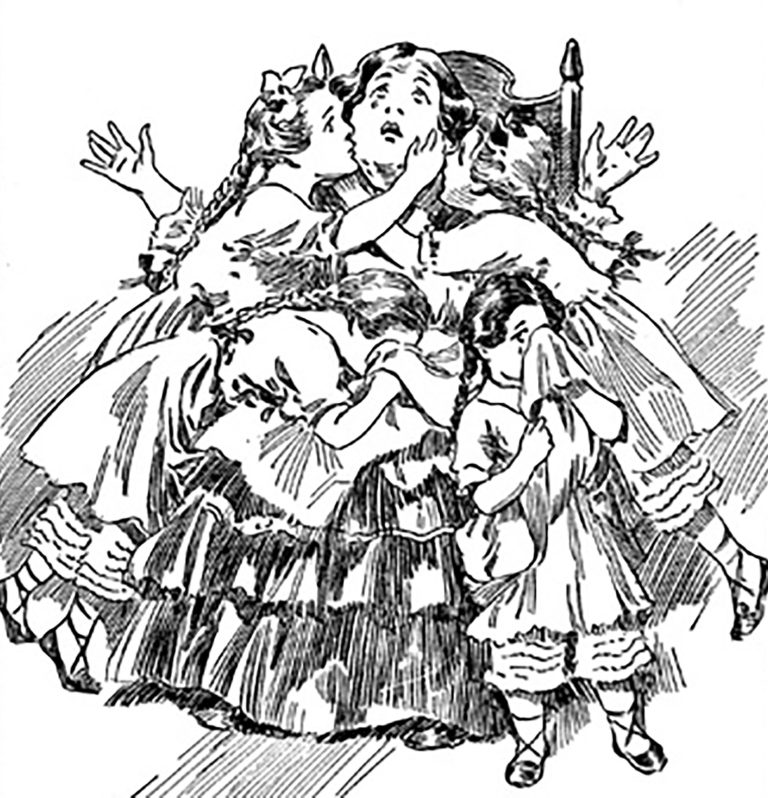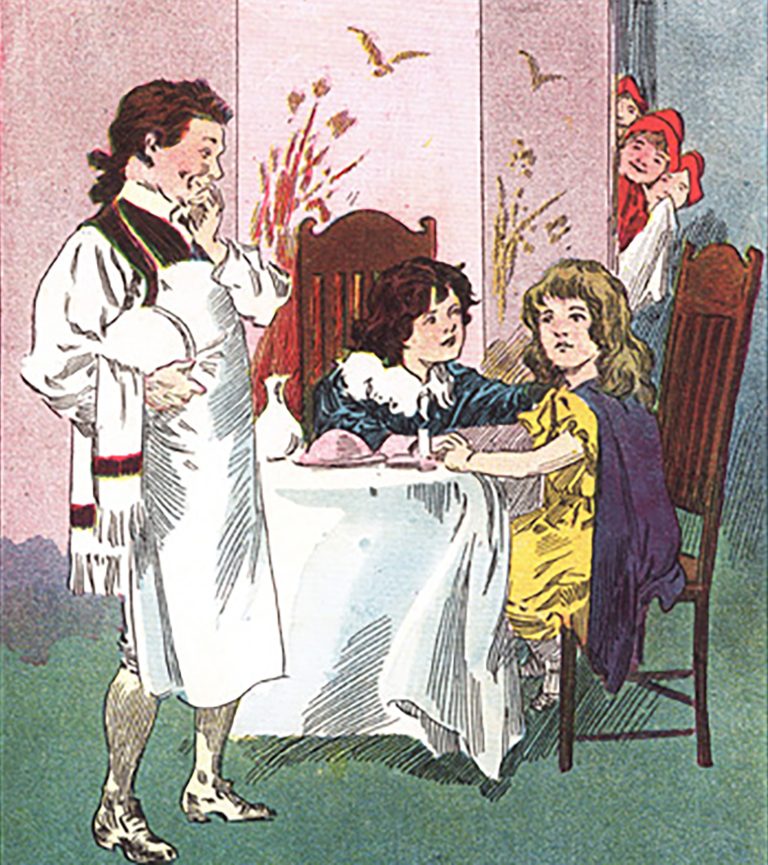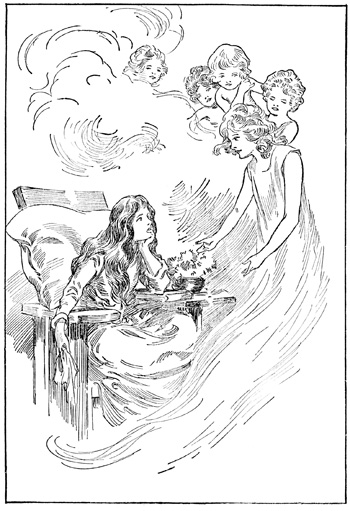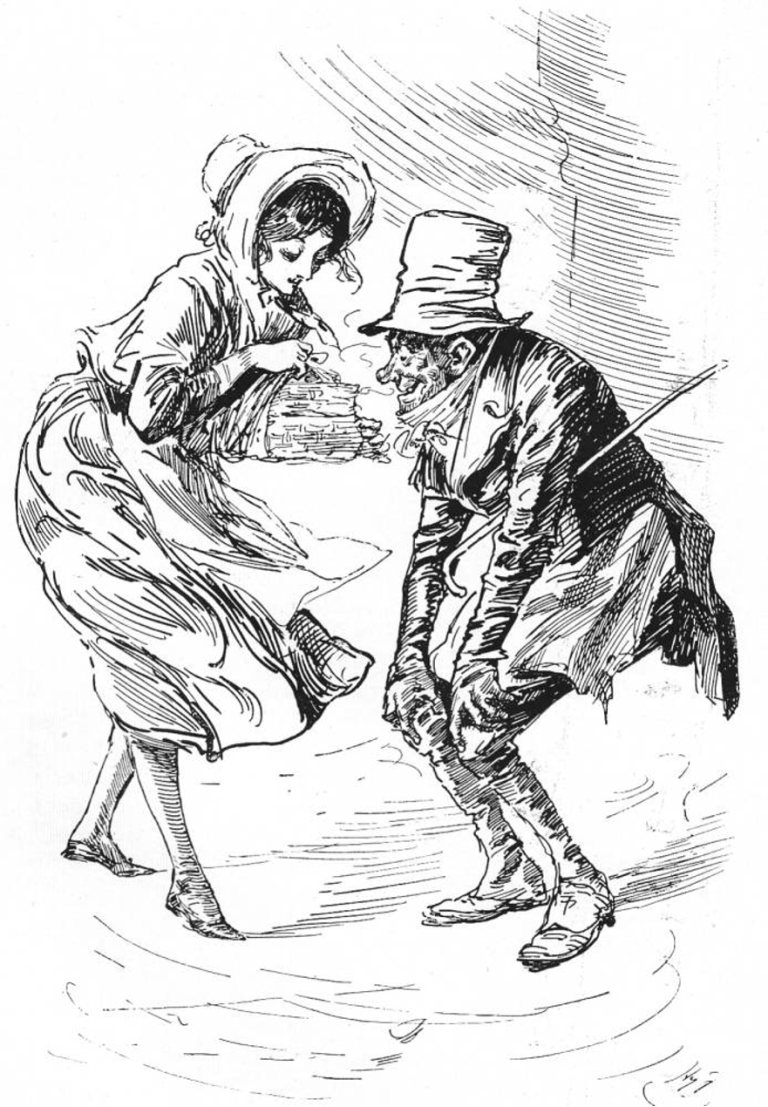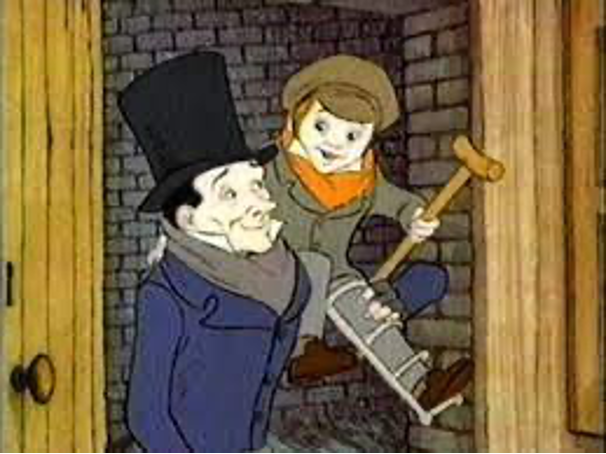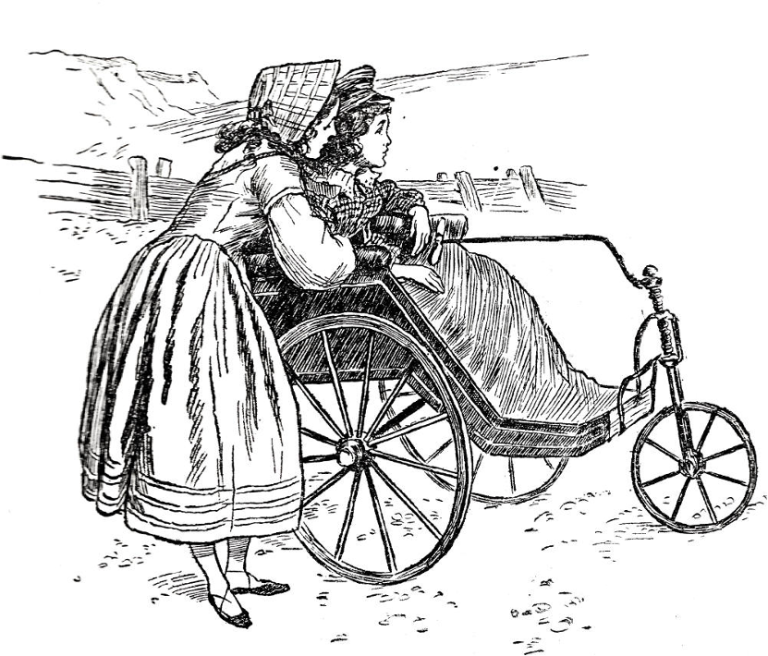by Charles DİCKENS
THE house was one of those receptacles for old and curious things, which seem to crouch in odd corners of the town; and in the old, dark, murky rooms, there lived alone together an old man and a child—his grandchild, little Nell. Soli-tary and monotonous as was her life, the innocent and cheerful spirit of the child found happiness in all things, and through the dim rooms of the old curio-sity shop little Nell went singing, moving with gay and lightsome step.
But gradually over the old man, to whom she was so tenderly attached, there stole a sad change. He became thoughtful, dejected, and wretched. He had no sleep or rest but that which he took by day in his easy chair; for every night, and all night long, he was away from home.
At last a raging fever seized him, and as he lay delirious or insensible through many weeks, Nell learned that the house which sheltered them was theirs no longer; that in the future they would be very poor; that they would scarcely have bread to eat.
At length the old man began to mend, but his mind was weakened. As the time drew near when they must leave the house, he made no reference to the neces-sity of finding other shelter. But a change came upon him one evening, as he and Nell sat silently together.
”Let us speak softly, Nell,” he said. “Hush! for if they knew our purpose they would say that I was mad, and take thee from me. We will not stop here another day. We will travel afoot through the fields and woods, and trust our-selves to God in the places where He dwells.”
The child’s heart beat high with hope and confidence. To her it seemed that they might beg their way from door to door in happiness, so that they were to-gether.
When the day began to glimmer they stole out of the house, and passing into the street stood still.
“Which way?” asked the child.
The old man looked irresolutely and helplessly at her, and shook his head. It was plain that she was thenceforth his guide and leader. The child felt it, but had no doubts or misgivings, and putting her hand in his, led him gently away.
They passed through the long, deserted streets, until these streets dwindled away, and the open country was about them. They walked all day, and slept that night at a small cottage where beds were let to travellers. The sun was set-ting on the second day of their journey, when, following a path which led to the town where they were to spend the night, they fell in with two travelling showmen, bound for the races at a neighboring town.
They made two long days’ journey with their new companions. The men were rough and strange in their ways, but they were kindly, too; and in the bewilde-ring noise and movement of the race-course, where she tried to sell some little nosegays, Nell would have clung to them for protection, had she not learned that these men suspected that she and the old man had left their home secretly, and that they meant to take steps to have them sent back and taken care of. Se-paration from her grandfather was the greatest evil Nell could dread. She seized her opportunity to evade the watchfulness of the two men, and hand in hand she and the old man fled away together.
That night they reached a little village in a woody hollow. The village school-master, attracted by the child’s sweetness and modesty, gave them a lodging for the night; nor would he let them leave him until two days more had passed.
They journeyed on when the time came that they must wander forth again, by pleasant country lanes. The afternoon had worn away into a beautiful eve-ning, when they came to a caravan drawn up by the road. It was a smart little house upon wheels, and at the door sat a stout and comfortable lady, taking tea. The tea-things were set out upon a drum, covered with a white napkin. And there, as if at the most convenient table in the world, sat this roving lady, ta-king her tea and enjoying the prospect. Of this stout lady Nell ventured to ask how far it was to the neighboring town. And the lady, noticing that the tired child could hardly repress a tear at hearing that eight weary miles lay still befo-re them, not only gave them tea, but offered to take them on in the caravan.
Now this lady of the caravan was the owner of a wax-work show, and her na-me was Mrs. Jarley. She offered Nell employment in pointing out the figures in the wax-work show to the visitors who came to see it, promising in return both board and lodging for the child and her grandfather, and some small sum of money. This offer Nell was thankful to accept, and for some time her life and that of the poor, vacant, fond old man, passed quietly and almost happily.
One night Nell and her grandfather went out to walk. A terrible thunder-storm coming on, they were forced to take refuge in a small public-house where men played cards. The old man watched them with increasing interest and excite-ment, until his whole appearance underwent a complete change. His face was flushed and eager, his teeth set. He seized Nell’s little purse, and in spite of her entreaties joined in the game, gambling with such a savage thirst for gain that the distressed and frightened child could almost better have borne to see him dead. The night was far advanced before the play came to an end, and they we-re forced to remain where they were until the morning. And in the night the child was awakened from her troubled sleep to find a figure in the room. It was her grandfather himself, his white face pinched and sharpened by the greediness which made his eyes unnaturally bright, counting the money of which his hands were robbing her.
Evening after evening, after that night, the old man would steal away, not to return until the night was far spent, demanding, wildly, money. And at last the-re came an hour when the child overheard him, tempted beyond his feeble powers of resistence, undertake to find more money to feed the desperate passion which had laid hold upon his weakness by robbing Mrs. Jarley.
That night the child took her grandfather by the hand and led him forth; sustai-ned by one idea—that they were flying from disgrace and crime, and that her grandfather’s preservation must depend solely upon her firmness; the old man following as though she had been an angel messenger sent to lead him where she would.
They slept in the open air that night, and on the following morning some men offered to take them a long distance on their barge. These men, though they were not unkindly, drank and quarrelled among themselves, to Nell’s inexpres-sible terror. It rained, too, heavily, and she was wet and cold. At last they reac-hed the great city whither the barge was bound, and here they wandered up and down, being now penniless, and watched the faces of those who passed, to find among them a ray of encouragement or hope.
They laid down that night, and the next night too, with nothing between them and the sky; a penny loaf was all they had had that day, and when the third morning came, it found the child much weaker, yet she made no complaint. Faint and spiritless as they were, the streets were insupportable; and the child, throughout the remainder of that hard day, compelled herself to press on, that they might reach the country. Evening was drawing on; they were dragging themselves through the last street. Seeing a traveller on foot before them, she shot on before her grandfather and began in a few faint words to implore the stranger’s help. He turned his head, the child uttered a wild shriek, and fell sen-seless at his feet. It was the village schoolmaster who had been so kind to them before.
The good man took her in his arms and carried her quickly to a little inn hard by, where she was tenderly put to bed and where a doctor arrived with all speed. The schoolmaster, as it appeared, was on his way to a new home. And when the child had recovered somewhat from her exhaustion, it was arranged that she and her grandfather should accompany him to the village whither he was bound, and that he should endeavor to find them some humble occupation by which they could subsist.
It was a secluded village, lying among the quiet country scenes Nell loved. And here, her grandfather being tranquil and at rest, a great peace fell upon the spi-rit of the child. Often she would steal into the church, and sit down among the quiet figures carved upon the tombs. What if the spot awakened thoughts of death? It would be no pain to sleep here. For the time was drawing nearer every day when Nell was to rest indeed. She never murmured or complained, but faded like a light upon a summer’s evening and died. Day after day and all day long, the old man, broken-hearted and with no love or care for anything in life, would sit beside her grave with her straw hat and the little basket she had been used to carry, waiting till she should come to him again. At last they fo-und him lying dead upon the stone. And in the church where they had often prayed and mused and lingered, hand in hand, the child and the old man slept together.



